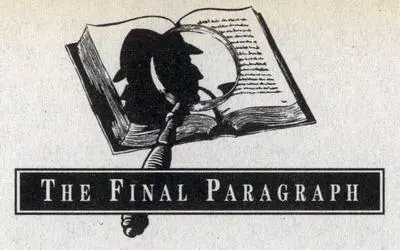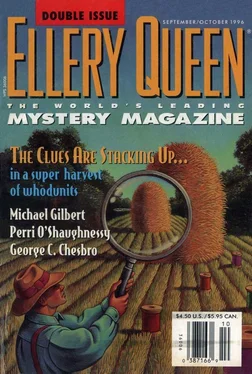Doug Allyn - v108 n03-04_1996-09-10
Здесь есть возможность читать онлайн «Doug Allyn - v108 n03-04_1996-09-10» весь текст электронной книги совершенно бесплатно (целиком полную версию без сокращений). В некоторых случаях можно слушать аудио, скачать через торрент в формате fb2 и присутствует краткое содержание. Город: Dell Magazines, Год выпуска: 1996, Издательство: Dell Magazines, Жанр: Детектив, на английском языке. Описание произведения, (предисловие) а так же отзывы посетителей доступны на портале библиотеки ЛибКат.
- Название:v108 n03-04_1996-09-10
- Автор:
- Издательство:Dell Magazines
- Жанр:
- Год:1996
- Город:Dell Magazines
- ISBN:нет данных
- Рейтинг книги:4 / 5. Голосов: 1
-
Избранное:Добавить в избранное
- Отзывы:
-
Ваша оценка:
- 80
- 1
- 2
- 3
- 4
- 5
v108 n03-04_1996-09-10: краткое содержание, описание и аннотация
Предлагаем к чтению аннотацию, описание, краткое содержание или предисловие (зависит от того, что написал сам автор книги «v108 n03-04_1996-09-10»). Если вы не нашли необходимую информацию о книге — напишите в комментариях, мы постараемся отыскать её.
v108 n03-04_1996-09-10 — читать онлайн бесплатно полную книгу (весь текст) целиком
Ниже представлен текст книги, разбитый по страницам. Система сохранения места последней прочитанной страницы, позволяет с удобством читать онлайн бесплатно книгу «v108 n03-04_1996-09-10», без необходимости каждый раз заново искать на чём Вы остановились. Поставьте закладку, и сможете в любой момент перейти на страницу, на которой закончили чтение.
Интервал:
Закладка:
When I asked if she had a picture of Andrew Lee she brought out a box of old snapshots and showed me one of herself, Andrew Lee, and another young man taken at an amusement park near Toronto. It was hard to believe the smiling, handsome, blond young man in the snapshot could ever have been charged with a brutal murder.
“That’s Manly Renard with us,” she said. “He was a graduate medical student at the university who was involved in the project. He and Andy Lee became quite close.”
I told her that Angus McGill had mentioned the name but, like him, she could give me no information about Renard’s present whereabouts.
“Unless you might try New York City,” she said. “I seem to remember Renard mentioning that he’d chosen medicine as a career because his father was a successful doctor in New York.”
Father? Or stepfather, I wondered. The possibility, even if remote, intrigued me.
Until my second attempt to elicit information from Agnew’s lawyer proved more fruitful and provided the breakthrough I’d been seeking for so long. He admitted that Manly Renard was indeed Dr. Agnew’s stepson and heir. His earlier reticence had been a case more of professional embarrassment than protocol.
“The truth is,” he admitted, “we lost track of Renard immediately after settling his stepfather’s estate. Our efforts to locate him were unsuccessful. So far as we know, he might have taken the money and sailed off to the South Seas. In a word, sir, he vanished.”
A feeling of closing in upon the truth now spurred me on. I had connected the links in the chain that led from Verity Bainbridge to Dr. Agnew, from Dr. Agnew to Manly Renard, and from Manly Renard to Andrew Lee Tibbetts; and as for the murder, lack of proof notwithstanding, I felt that I’d unearthed both motive and means.
For all the good it did me. Unless I could locate Manly Renard and somehow pry the truth out of him — and how I could do this, having no hard evidence with which to threaten him, I had no idea — then all my efforts would have been in vain. As time passed it appeared that my attempts to find the elusive Renard were as doomed to failure as the lawyer’s. It was as if he’d taken the money — all but the fifty thousand dollars I was convinced he’d paid Tibbetts for committing the murder — and lost himself in some distant land.
A year passed. I’d given up hope of ever writing an ending to the Sleepwalker Murder Case, left only with the satisfaction of having proved to myself the truth of my theory of how and why it had been perpetrated, that brutal slaying of my distant benefactress.
But fate, perhaps, has an even stronger abhorrence of loose ends than does the amateur detective, and it was on an autumn evening, as I sat watching a panel discussion on a TV talk show, that I was struck by something uncannily familiar about the face of one of the participants, a well-known New York physician. I rushed to my files and dug out that snapshot of Andrew Lee Tibbetts and Manly Renard. Even allowing for the changes wrought by time, I was convinced that I was right. The face of the man on TV was the face of Manly Renard.
Only the name was wrong.
Three days after our dinner together Lyman Fox rang and invited me to lunch at his club. His manner on this occasion was anything but genial; no pretense of friendship. As soon as we were seated he shoved the Bainbridge dossier across the table to me.
“I’ve never read such rubbish,” he said frigidly, “nor have I ever met anyone as blatantly deceitful as you.”
I smiled in mock surprise. “You didn’t find my theory — interesting?”
“I find it libelous. A tissue of lies and wild conjecture. What a funny little man you are, James. To come creeping out of some hole, seeking me out, currying my friendship. What did you hope to achieve?”
“The truth.”
He jabbed a finger toward the dossier. “You call that the truth?”
“It all fits. You knew your stepfather was dying, would in all likelihood die before Verity Bainbridge, causing you to lose out on all that money. You were greedy and ambitious and as fate would have it you lucked onto someone as greedy as yourself. Working in that sleep disorder laboratory at the university you somehow won Tibbetts’s confidence — he was easily suggestible and always good for a gamble, and probably a closet psychopath as well. You convinced him that he could murder a stranger and get away with it, would stand a better than even chance of being acquitted once a jury was persuaded he hadn’t known what he was doing when he committed the crime. You promised him fifty thousand dollars if he took the risk.” I tapped the dossier. “It’s all here, the whole chain of events.”
He regarded me with supercilious contempt. “And not a shred of proof. If there had been, the police would have discovered it.”
“Possibly — if they’d dug as deeply as I did. And been as lucky. It was pure luck I saw you on that TV show. Another thing that convinced me of your guilt was that you evidently found it advisable to sever yourself from your past, even to changing your name, an amusing but not especially clever change. Lyman, an anagram of Manly; Fox, the English equivalent of the French Renard.”
His expression remained aloof and disdainful. “And you, James, are neither amusing nor clever. A theory, as you must have taught in your own classrooms, is no good without proof.”
“We’ll see if the authorities share your opinion. I’m confident the case will be reopened. You’ll be ruined, you must know that.”
I picked up the dossier and rose. “Thanks for the invitation, Lyman, but I suddenly have no appetite.” With that I walked out of the room.
Now that it was over, I didn’t really care what happened to Lyman Fox. Enough that I knew my quest had been successful, that I’d done what I could to even the score for Verity Bainbridge. Nor can I say I felt any strong sense of satisfaction when I learned of Fox’s death. It was the final proof I needed. A man of Lyman’s professional standing and social prominence was not the sort who could face ruin and disgrace.
Nonetheless, as time passes, I suppose it’s not unnatural for a shade of doubt occasionally to trouble me. I have the firmest conviction that I proved my case, but as in many more celebrated cases, the evidence, one must admit, was circumstantial. I’m back home at the cottage now, snug and secure, yet for some reason I’ve been having trouble sleeping. The insomnia keeps getting worse. Maybe I should see a doctor.
Murder Set to Music
by Henry Slesar
© 1996 by Henry Slesar

“It’s one-thirty P.M.,” Tommy Noone said, lips close to the microphone. “One-thirty and still Noone Time.” It was his catch-phrase, familiar to radio listeners in White Mills and beyond — not too far beyond, the range of WMZ being less than two hundred miles.
Tommy had been the station’s engineer before he married the station owner’s daughter. Now he was also its disk jockey, spinning Sixties records from noon to six, to an audience of truck farmers and bored housewives, none more bored, or more truculent, than his wife Trina.
He dropped a needle on a Bee-Gee record and thought about Trina dead, her eyes closed, and, more gratifying, her mouth. He had conjured up the vision more than once in their fifteen-year marriage, but never thought of making it a reality until two weeks ago, when Trina told him she might sell the station.
“It costs more than it’s worth,” Trina said, and showed him the papers that proved it.
Tommy looked at the old wall clock. It read 1:45. He would make the first move in fifteen minutes.
Читать дальшеИнтервал:
Закладка:
Похожие книги на «v108 n03-04_1996-09-10»
Представляем Вашему вниманию похожие книги на «v108 n03-04_1996-09-10» списком для выбора. Мы отобрали схожую по названию и смыслу литературу в надежде предоставить читателям больше вариантов отыскать новые, интересные, ещё непрочитанные произведения.
Обсуждение, отзывы о книге «v108 n03-04_1996-09-10» и просто собственные мнения читателей. Оставьте ваши комментарии, напишите, что Вы думаете о произведении, его смысле или главных героях. Укажите что конкретно понравилось, а что нет, и почему Вы так считаете.












